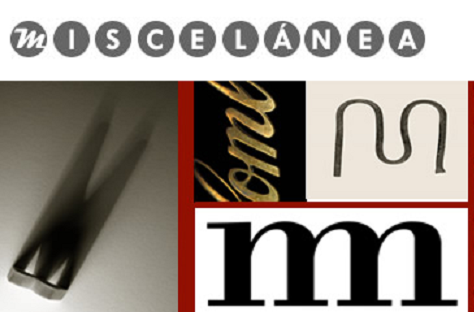Copernican Revolutions: Mary Jo Salter’s Intertextual Interpretation of Paradise Lost in Falling Bodies
DOI:
https://doi.org/10.26754/ojs_misc/mj.20099658Palabras clave:
Salter, Milton, Intertextualidad, Tragische analysis, TerrorResumen
La intertextualidad ha sido considerada a menudo como simple reescritura del argumento de una obra literaria. De esta manera, el papel de las estructuras en la creación de redes de significado que cruzan el límite de una obra en particular ha sido minimizado. En cambio, el presente estudio se plantea como una investigación de los significados con los que se revisten unas estructuras tradicionales como el principio in medias res (o tragische Analysis). En particular, este artículo presenta la manera en que la manipulación de este mecanismo literario —heredado de la poesía épica antigua— permitió a Milton en Paradise Lost cambiar radicalmente las connotaciones morales que originariamente habían caracterizado este género, ocasionando de esta manera lo que John M. Steadman definió como una “Revolución copernicana” en la literatura. Además, este estudio analiza la reutilización del modelo miltoniano en Falling Bodies, pieza teatral de la poetisa americana contemporánea Mary Jo Salter. Aquí, la tragische Analysis se utiliza para ocasionar una nueva revolución copernicana en la cual el foco de atención se ha trasladado de la moralidad a la literatura. Esta
estructura permite a Salter investigar el mismo mecanismo de la intertextualidad y también demostrar que la recreación literaria nunca desmonta el sistema al que pertenece; al contrario, la recreación literaria enriquece la tradición de la que proviene en un incesante proceso de reescritura y manipulación.
Descargas
Referencias
BACIGALUPO, Massimo. 2004-2005. “A Note on Mary Jo Salter’s America”. Rivista di Studi Nordamericani 15–16: 145–149.
BARKER, Arthur A. 1965. “Structural Pattern in Paradise Lost”. Milton: Modern Essays in Criticism. Ed. A.A. Barker. London, Oxford, New York: Oxford U.P.
BENTHALL, R.A. 2003. “Mary Jo Salter”. New Formalist Poets. Ed. and introd. J.N. Barron and B. Meyer. Detroit, MI: Thomson Gale: 265–271.
BERTOLI, Mariacristina Natalia. 2008. “Gliscacchi di Freud. Per un’anatomia della critica letteraria psicoanalitica”. Testo 56 (7): 30.
BRADLEY, Andrew Cecil. (1904) 1966. Shakespearean Tragedy. New York: Macmillan.
COLIE, Rosalie L. 1960. “Time and Eternity: Paradox and Structure in Paradise Lost”. Journal of the Warburg and Courtauld Institutes 23 (1/2): 127–138.
ELIOT, Thomas S. (1919) 1971. “Tradition and Individual Talent”. Selected Essays, London: Faber and Faber.
FORSYTH, Neil. 1981. “Homer in Milton: The Attendance Motif and the Graces”. Comparative Literature 33 (2): 137–155.
FREUD, Sigmund. 1985. The Complete Letters of Sigmund Freud to Wilhelm Fliess, 1887–1904. Transl. J.M. Masson. Cambridge, MASS: The Belknap Press.
—. 2003. An Outline of Psychoanalysis. Transl. H. Ragg-Kirkby. London: Penguin.
GOETHE von, Johann Wolfgang. 1949. Gedenkausgabe der Werke, Briefe und Gespräche. Zurich: Artemis Verlag.
HORACE. (c. 18 BC) 1947. Ars Poetica. Ed. A.S. Wilkins. London: Macmillan.
KATES, Judith A. 1974. “The Revaluation of the Classical Heroic in Tasso and Milton”. Comparative Literature 26 (4): 299–317.
KIERKEGAARD, Søren. 1944. The concept of Dread. Transl. W. Lowrie. Princeton: Princeton U.P.
KING-KOK, Cheung. 1984. “Shakespeare and Kierkegaard: ‘Dread’ in Macbeth”. Shakespeare Quarterly 34 (4): 430–439.
KRISTEVA, Julia. 1969. Séméiôtiké: recherches pour une sémanalyse. Paris: Editions du Seuil.
LAVAGETTO, Mario. 2003. Lavorare con piccoli indizi. Torino: Bollati Boringhieri.
MARTINDALE, Charles. 1985. “Paradise Metamorphosed: Ovid in Milton”. Comparative Literature 37 (4): 301–333.
MATTE BLANCO, Ignacio. 1998. The Unconscious as Infinite Sets: An Essay in Bi-logic. London: Karnac Books.
MILTON, John. Paradise Lost. (1667) 1975. Ed. S. Elledge. New York-London: W.W. Norton & Company.
PADUANO, Guido. 1994. Lunga Storia di Edipo Re. Freud, Sofocle e il teatro occidentale. Torino: Einaudi.
POST, Jonathan. 2008. “Ekphrasis and the Fabric of the Familiar in Mary Jo Salter’s Poetry”. In The Frame: Women’s Ekphrastic Poetry from Marianne Moore to Susan Wheeler. Ed. J. Hedley, N. Halpern, W. Spiegelman. Newark, DE: University of Delaware Press.
SALTER, Mary Jo. 2004. Falling Bodies. Unpublished manuscript.
SOBEL, Dava. 1999. Galileo’s Daughter: A Historical Memoir of Science, Faith and Love. New York: Walker & Co.
SPITZER, Leo. 1948. Linguistics and Literary History: Essays in Stylistics. Princeton: Princeton U.P.
STEADMAN, John M. 1967. Milton and the Renaissance Hero. Oxford: Clarendon Press.
TANNER, John S. 1988. “‘Say First What Cause:’ Ricoeur and the Etiology of Evil in Paradise Lost”. PMLA 103 (1): 45–56.
TAYLOR, Henry. 2002. “Faith and Practice: The Poems of Mary Jo Salter”. Twayne Companion to Contemporary Literature in English. Ed. R.
H. W. Dillard and A. Cockrell. New York: Twayne Thomson Gale, vol. II: 297-310.
WALLACE, William A. 1974. “Galileo and Reasoning Ex Suppositione: The Methodology of the Two New Sciences”. Proceedings of the Biennial Meeting of the Philosophy of Science Association: 79–104.
Descargas
Publicado
Número
Sección
Licencia

Esta obra está bajo una licencia internacional Creative Commons Atribución-NoComercial 4.0.


